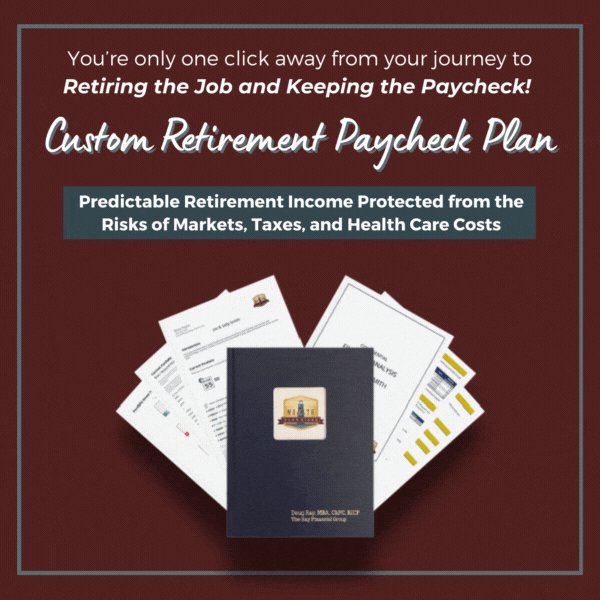 Be very careful when making even small changes to your assumptions
Be very careful when making even small changes to your assumptions
Cut a pie into 100 slices and what do you have? Barely a nibble. Seemingly an inconsequential share of anything, 1% can actually make a tremendous difference to your financial security. Even fractions of a percent added to investment returns over time can redefine your life in retirement or your net worth.
For instance, if you can increase your average annual investment return from 5% to 6%, that bump represents a fifth better return – and a substantial increase in your options for living.
The Difference 1% Makes
Let’s assume that you saved well over your career. You’re 65 now and, in addition to your Social Security benefits, you have $500,000 that may need to last 30 years. A 5% average annual return – reduced 2.5 percentage points for projected inflation (yes inflation is much higher today, but let’s use a more historical rate for inflation) – allows you to withdraw $1,750 pre-tax each month and enjoy, considering average longevity, an excellent probability of not running out of money for the rest of your life.
Increase your average annual return to 6% (make it 3.5% after inflation) and you can increase monthly withdrawals to $2,000 while maintaining significant probability of stretching your nest egg to age 95.
Sounds great – except that adding a percentage point to your expected returns without accounting for more fluctuation in your investment outcomes is hard given today’s low yields for bonds.
For the past 30 years, many people lived well in retirement off bond-heavy portfolios. As interest rates trended down for a generation, bond returns were adequate to exceptional.
The Golden Age of Bonds is Probably Dead
We have probably left the golden age of bonds. Now global interest rates are near all-time lows and investors find bond returns inadequate to generate enough retirement income.
Bonds saw multiple decades of weak returns years ago, but most retirees then had both shorter life expectancies and company pensions instead of an investment account. Retirees saw far less reason to squeeze a little more return out of money.
With low bond income, many investors feel compelled to seek more investment return via more money in the stock market or high-yield junk bonds that may deliver better returns and higher income only in exchange for more uncertainly and volatility. Risk of bond issuers’ default, aka credit risk, is tame right up until it isn’t – sometimes also the moment that some investors ignore issuers’ questionable credit quality while scrambling for that extra point.
Your Written Investment Policy
So how can you walk that narrow cliff trail between risk and earning slightly more? First, focus on what you can control. Though this task obviously doesn’t include investment outcomes, you can learn much more about your exposure to risk, reasonably expected returns and how both match your goals.
A written investment policy (aka an investment policy statement) tied to your financial plan can add a guardrail to that cliff edge, minimizing your emotional and knee-jerk decisions when the market turns temporarily sour.
In today’s uncertain economy, it is more important than ever to have a clear understanding of the risks associated with your current investment portfolio and to be proactive in protecting your hard-earned money. Our free portfolio risk analysis provides you with the information you need to make informed decisions about the future of your retirement savings.
With our cutting-edge software, we can help you create your Custom Retirement Paycheck Plan that balances risk and growth while minimizing taxes and protecting your assets from market downturns. So don’t wait – get your plan today!
Our Custom Retirement Paycheck Plan shows how to protect your retirement from the risks of unexpected market swings, tax changes, and health care expenses using a mathematically tested strategy to create lifetime income allowing you to stop worrying about outliving your money and get on with enjoying the rest of your life.
Give us a call at our Charlotte office at (704) 248-8549, or our Clemmons office at (336) 391-3409. Or, click here to request a no-cost, no-obligation meeting.
[SOURCES & ADDITIONAL DISCLOSURES]
Copyright © 2022 FMeX. All rights reserved. Distributed by Financial Media Exchange.







